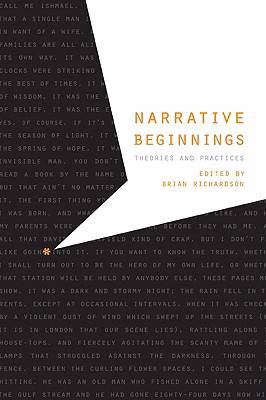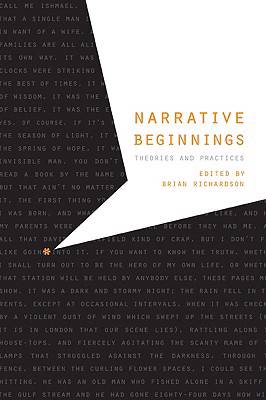
- Retrait gratuit dans votre magasin Club
- 7.000.000 titres dans notre catalogue
- Payer en toute sécurité
- Toujours un magasin près de chez vous
- Retrait gratuit dans votre magasin Club
- 7.000.000 titres dans notre catalogue
- Payer en toute sécurité
- Toujours un magasin près de chez vous
Description
George Eliot wrote that "man cannot do without the make-believe of a beginning." Beginnings, it turns out, can be quite unusual, complex, and deceptive. The first major volume to focus on this critical but neglected topic, this collection brings together theoretical studies and critical analyses of beginnings in a wide range of narrative works spanning several centuries and genres. The international and interdisciplinary scope of these essays, representing every major theoretical perspective--including feminist, cognitive, postcolonial, postmodern, rhetorical, ethnic, narratological, and hypertext studies--extends from classic literary fiction to nonfictional discourse to popular culture.
The authors, respected scholars and emerging critics, ask what conventions structure our understanding of beginnings before we encounter them; how best to analyze and comprehend beginnings in historical, traditional, and postmodern works; and how endings are (often unexpectedly) related to beginnings. The contributors use historical, political, narratological, and psychological frameworks to pursue these and related questions in works by Laurence Sterne, James Joyce, Virginia Woolf, Samuel Beckett, Manuel Puig, Salman Rushdie, Julia Alvarez, and feminist hypertext fiction. Together their essays comprise the single most important volume for theorizing about and understanding narrative beginnings.
Brian Richardson is a professor of English at the University of Maryland. He is the author of Unnatural Voices: Extreme Narration in Modern and Contemporary Fiction and Unlikely Stories: Causality and the Nature of Modern Narrative, and the editor of Narrative Dynamics: Essays on Plot, Time, Closure, and Frames.
Contributors: Oliver Buckton, Philippe Carrard, Tita Chico, Ryan Claycomb, Melba Cuddy-Keane, Marilyn Edelstein, Patrick Colm Hogan, Jessica Laccetti, Niels Buch Leander, Gaura Shankar Narayan, Armine Kotin Mortimer, James Phelan, Carlos Riobo, Brian Richardson, Catherine Romagnolo, and Susan Winnett.
Spécifications
Parties prenantes
- Editeur:
Contenu
- Nombre de pages :
- 296
- Langue:
- Anglais
- Collection :
Caractéristiques
- EAN:
- 9780803239746
- Date de parution :
- 01-01-09
- Format:
- Livre broché
- Format numérique:
- Trade paperback (VS)
- Dimensions :
- 150 mm x 226 mm
- Poids :
- 408 g






